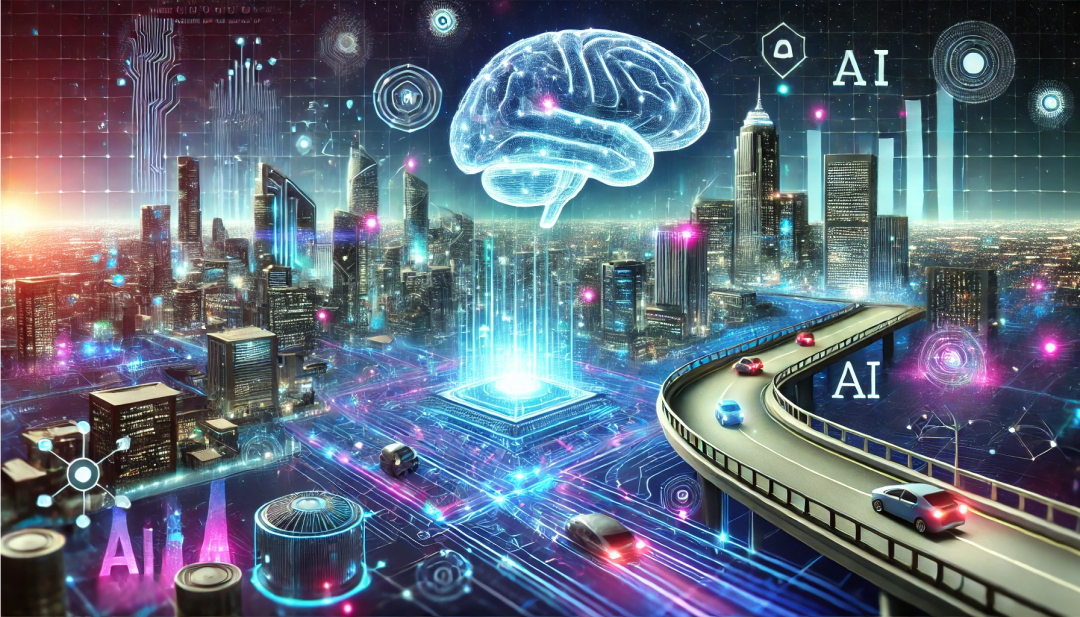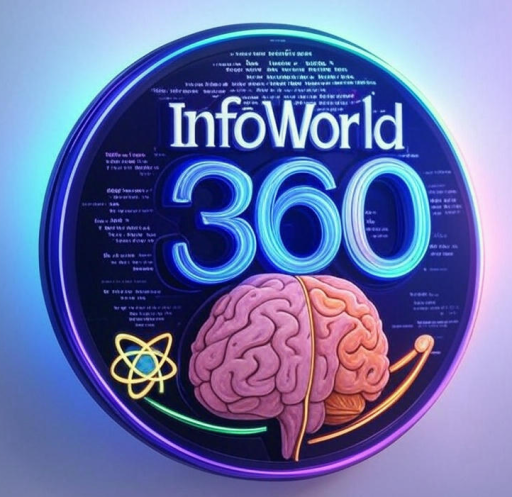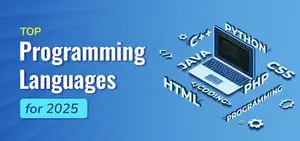
The Future of AI: Trends and Predictions
Overview
Artificial Intelligence (AI) is rapidly transforming our world, impacting everything from how we work and live to how businesses operate and interact with customers. This article delves into the exciting future of AI, exploring key trends, expert predictions, and real-world applications, providing a comprehensive overview for anyone interested in understanding the trajectory of this revolutionary technology. We will also cover the SEO aspects, to make this article rank highly in search engines.
Key Trends Shaping the Future of AI
Several major trends are driving the evolution of AI, pushing the boundaries of what's possible and creating new opportunities across industries.
1. Generative AI and Democratization
Generative AI, capable of creating new content (text, images, audio, video, code), has exploded onto the scene. Tools like ChatGPT, DALL-E, and others have made AI accessible to the general public, not just AI specialists. This democratization of AI is a significant trend, empowering individuals and businesses with powerful creative and problem-solving capabilities. Generative AI is expected to add trillions of dollars in value across industries. (2025-01-06)
SEO Impact: Content creation is faster and more efficient. AI tools can assist with generating meta descriptions, optimizing for specific keywords, and even creating different content variations for A/B testing. However, it's crucial to maintain human oversight to ensure quality, accuracy, and originality. (2023-12-24)
2. AI Agents: From Chatbots to Autonomous Systems
The next evolution of AI involves moving beyond simple chatbots and towards AI agents. These are systems capable of acting autonomously to complete complex tasks, rather than just answering questions. (2025-01-16) Imagine AI agents scheduling appointments, managing workflows, writing software, or even functioning as virtual co-workers. (2025-01-16) This trend is expected to redefine workplaces, boosting productivity and innovation. (2025-01-08)
Example: An AI agent could manage a company's entire customer service operation, handling inquiries, resolving issues, and proactively reaching out to customers based on their needs and past interactions. Another example is in project management where AI agents can track progress, assign tasks, and identify potential roadblocks.
SEO Impact: AI agents can analyze search intent more deeply, creating semantic maps of related keywords, phrases, and subtopics. They can also identify content gaps and suggest latent semantic indexing (LSI) keywords to improve content alignment with search engine algorithms. (2025-01-09)
3. Multimodal AI: Unleashing the Power of Context
Multimodal AI combines different types of data – text, images, audio, video – to create a more comprehensive understanding of the world. This allows AI systems to process information in a way that is closer to how humans do, leading to more nuanced and accurate results. (2025-01-15)
Example: A multimodal AI system could analyze a video of a customer interacting with a product, combining visual data (facial expressions, body language) with audio data (tone of voice, spoken words) and text data (customer reviews, product descriptions) to gain a deeper understanding of customer sentiment and product usability.
SEO Impact: Optimization will extend beyond text to include images, videos, and audio. Understanding how search engines interpret and rank multimodal content will be crucial.
4. AI-Driven Automation and Hyperautomation
AI is increasingly being used to automate tasks across various industries, leading to greater efficiency and productivity. Hyperautomation takes this a step further, combining AI with other technologies like Robotic Process Automation (RPA) and machine learning to automate complex, end-to-end business processes.
Examples:
- Manufacturing: Predictive maintenance, quality control, automated assembly lines. (2024-01-29)
- Finance: Fraud detection, algorithmic trading, risk assessment, automated loan processing. (2024-01-29)
- Healthcare: Automated diagnosis, personalized treatment plans, drug discovery. (2024-01-29)
- Retail: Automated inventory management, personalized recommendations, chatbot customer service. (2024-01-29)
- Logistics: Route optimization, warehouse automation, autonomous delivery vehicles.
SEO Impact: AI can automate many SEO tasks, such as keyword research, content optimization, link building (with caution), and performance reporting. This frees up SEO professionals to focus on higher-level strategy and creative tasks.
5. AI and Cybersecurity: A Double-Edged Sword
AI is playing an increasingly important role in cybersecurity, both offensively and defensively. AI-powered systems can detect and respond to threats much faster than humans, helping to prevent and mitigate cyberattacks. However, AI can also be used by malicious actors to create more sophisticated and difficult-to-detect attacks. (2025-01-06)
Example: AI can be used to identify anomalies in network traffic that might indicate a cyberattack, or to predict and prevent phishing attacks by analyzing email content and sender behavior. Conversely, AI could be used to generate highly realistic deepfakes for social engineering attacks or to automate the creation of malware variants.
SEO Impact: AI-powered security tools can help protect websites from malicious attacks that could negatively impact search rankings, such as website defacement or content injection.
6. Ethical AI and Responsible AI
As AI becomes more powerful and pervasive, concerns about ethical AI and responsible development are growing. Issues such as bias, fairness, transparency, accountability, and privacy are becoming increasingly important. Businesses that prioritize ethical AI are likely to gain customer trust and loyalty. (2025-01-08)
Example: In financial services, AI-powered loan approval systems must be designed to be fair and unbiased, avoiding discrimination against certain demographics. Transparency in how AI systems make decisions is also crucial, allowing users to understand and challenge those decisions if necessary.
SEO Impact: Search engines are increasingly rewarding websites that prioritize user safety and data privacy. Transparent data practices and adherence to ethical guidelines will likely become ranking factors. (2025-02-04)
7. AI in Healthcare: Revolutionizing Diagnosis and Treatment
AI is poised to revolutionize healthcare, from earlier disease detection and diagnosis to personalized treatment plans and drug discovery. AI can analyze medical images (X-rays, CT scans) with greater speed and accuracy, improving diagnosis. (2024-01-29) AI is also being used to develop new drugs and vaccines, significantly reducing development time. (2024-01-29)
Example: AI-powered tools can help doctors identify subtle patterns in medical images that might be missed by the human eye, leading to earlier detection of diseases like cancer. AI can also be used to personalize treatment plans based on a patient's individual genetic makeup and medical history.
SEO Impact: Healthcare providers can use AI to optimize their online content for relevant search queries, making it easier for patients to find information about specific conditions, treatments, and services. AI can also personalize the patient experience by providing tailored content and recommendations.
8. AI in Education: Personalized Learning and Streamlined Administration
AI is transforming education by enabling personalized learning experiences, automating administrative tasks, and providing valuable insights for educators. AI-powered platforms can adapt to individual student needs, providing customized learning paths and support. (2024-01-29)
Example: AI tutors can provide students with personalized feedback and support, helping them to learn at their own pace. AI can also automate tasks like grading and attendance tracking, freeing up teachers to focus on instruction and student interaction.
SEO Impact: Educational institutions can use AI to optimize their website content for relevant search queries, making it easier for prospective students to find information about programs, courses, and admissions. AI can also be used to create engaging and interactive learning materials that improve student outcomes.
Expert Predictions for the Future of AI
While predicting the future with certainty is impossible, many experts have offered insights into the potential trajectory of AI. Here's a summary of some key predictions:
- AI-driven job loss: AI-driven job displacement will be a major social and political issue. (2024-03-10)
- Humanoid Robots: Deployment of humanoid robots in real-world applications will increase significantly. (2024-03-10)
- AI for Scientific Breakthroughs: AI will drive significant advancements in scientific research, leading to new discoveries and innovations. (2025-01-08)
- AI and National Security: Governments will increasingly view AI through the lens of national security, leading to increased competition and regulation. (2025-01-16)
- Transformative AI by 2050: There's a 50% chance of a transformative AI system becoming possible and affordable by 2050.
- Human-Level AI: Many AI experts believe there's a significant chance of developing human-level AI within the next few decades.
- AGI by 2040: Some forecaster communities predict a 50/50 chance of Artificial General Intelligence (AGI) being developed by 2040.
Practical Scenarios: AI Across Industries
Here are some practical examples of how AI is being used across various industries:
- Retail: Personalized shopping experiences, AI-powered assistants, fraud prevention, inventory management. (2024-01-29)
- Finance: Algorithmic trading, fraud detection, risk assessment, customer service chatbots, personalized financial advice. (2024-01-29)
- Healthcare: Disease diagnosis, drug discovery, personalized medicine, robotic surgery, patient monitoring. (2024-01-29)
- Manufacturing: Predictive maintenance, quality control, process optimization, robotics, supply chain management. (2024-01-29)
- Transportation: Autonomous vehicles, traffic management, route optimization, logistics, predictive maintenance. (2024-01-29)
- Education: Personalized learning, automated grading, student support chatbots, educational content creation. (2024-01-29)
- Entertainment: Content recommendation systems, personalized gaming experiences, AI-generated music and art, special effects in movies. (2024-01-29)
- Agriculture: Crop monitoring, precision farming, automated irrigation, disease detection, livestock management. (2024-01-29)
- Customer Service: AI-powered chatbots, sentiment analysis, personalized support, automated response systems. (2024-01-29)
- Marketing and Advertising: Targeted advertising, personalized content recommendations, customer segmentation, campaign optimization.
- Smart Homes and IoT: AI-powered devices like thermostats, security cameras, and voice assistants learn from user habits. (2024-01-29)
SEO Optimization: Keywords and Strategy
To ensure this article ranks highly in search engines, we've incorporated relevant keywords and followed SEO best practices. Here's a breakdown of the key elements:
- Primary Keywords: Future of AI, AI trends, AI predictions, Artificial Intelligence.
- Secondary Keywords: Machine learning, deep learning, AI applications, AI in [industry], AI ethics, AI safety, generative AI, AI agents, AGI, AI automation, AI and jobs, future technology.
- Long-Tail Keywords: How will AI impact [industry], What are the ethical implications of AI, How to use AI for [task], Best AI tools for [purpose].
- Content Structure: Clear headings and subheadings, bullet points, concise paragraphs, internal and external links.
- Meta Description: A compelling summary of the article's content, including relevant keywords.
- Image Alt Text: Descriptive alt text for any images, incorporating relevant keywords.
- Readability: Using clear and concise language, avoiding jargon where possible.
Key Takeaways
- AI is evolving rapidly, with generative AI, AI agents, and multimodal AI being key trends.
- AI is impacting virtually every industry, creating new opportunities and challenges.
- Ethical considerations and responsible AI development are becoming increasingly important.
- AI is poised to revolutionize healthcare, education, and many other sectors.
- Understanding AI trends and predictions is crucial for businesses and individuals to adapt and thrive in the future.
- SEO strategies must adapt to the changing landscape of AI-powered search and content creation.
The future of AI is filled with both immense potential and significant challenges. By staying informed about the latest trends and predictions, embracing responsible development practices, and adapting to the changing landscape, we can harness the power of AI to create a better future for all.


Comments